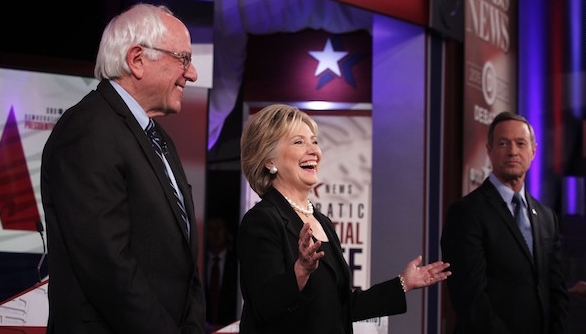Polls Are Ineffective, So Why Do We Trust Them?
The 2016 presidential election is exposing a lot of the shortcomings in our democratic process and how bipartisan politics mixed with antiquated methods of voting have made for a rather corrupt current political climate. This is now being exposed as inaccurate polls are being released after the presidential debates. How much more will it take for people to realize that liquid democracy and online voting need to implemented sooner rather than later?
A consensus has formed around the proposition that polling, especially in multi-candidate presidential races, has become inaccurate and unreliable.
This judgment, rendered by respected experts, exposes the absurdity and corruption of the recent decision by the Commission on Presidential Debates to continue using polls to determine who will be on the stage in the fall of 2016.
Jill Lepore’s excellent article in the Nov. 16 issue of The New Yorker is only the latest in a series of authoritative pieces providing evidence of how “horse-race” polling isn’t working anymore – and explaining why. Dan Balz made similar points in a Washington Post article on Nov. 7. Michael Barone, the dean of election analysts, co-founder of The Almanac of American Politics, and pollster himself for nine years, made the case against polling on Nov. 11 in the Wall Street Journal. He also quoted his American Enterprise Institute colleague, Karlyn Bowman, saying that this may be “the end of polling as we know it.”
The New York Times has run several pieces on the subject, including an op-ed in June by Cliff Zukin, a Rutgers scholar who is past president of the American Association of Public Opinion Research.
Dr. Zukin concluded:
“We are less sure how to conduct good survey research now than we were four years ago, and much less than eight years ago… In short, polls and pollsters are going to be less reliable. We may not even know when we’re off base.”
The evidence abounds. It includes the Israeli and British elections and, on Nov. 3, the Kentucky governor’s race. The polls had the Democrat winning, but the Republican won in what was practically a landslide, 53% to 44%.
The reasons for the declining accuracy of polls are now well known:
- sharply falling response rates by voters called for their opinions,
- the difficulty and expense involved in reaching people who have abandoned land lines for cell phones (a law bans auto-dialing to mobile phones),
- and the near-impossibility of adjusting results to achieve the proper weighting of demographic groups and to determine which of the respondents will actually show up to vote.
As a result, Gallup, the premier U.S. polling organization, announced recently that it would not poll for the primaries this year and might not poll for the general election either.
But the main problem with polling is the uses to which it is being put – especially making it the main criterion for admission to debates. Lepore quotes Scott Keeter, director of survey research for Pew: “I don’t think polling is really up to the task of deciding the field for the headliner debate.”
Read more at: ivn.us


